Thank you for this exciting interview.

GRUNGE SCENE
CATA CROITORU: Hello, Charles! Thank you for this exciting interview. You are one of the most famous music scene photographers in the world, mostly for capturing the then-newly emerging grunge scene. Among your iconic images, we can find intimate images of Kurt Cobain of Nirvana, Pearl Jam and Soundgarden. Your career in photography began in the mid 80s. You are well-known for your work with the Seattle-based independent record label, Sub Pop, your images were exhibited in museums and galleries around the world and your images are being featured in several important publications. This is such an impressive career! I'm sure Lens' readers would like to know how it all began.
CHARLES PETERSON: Thanks Cata. Many of the core musicians of the grunge scene and I met while in college. I went to the University of Washington, in the neighborhood known as the U-District, where many of us lived, whether attending college or not. It was populated with inexpensive old homes, perfect for parties, practice, and living cheaply. I had grown up in the suburbs of Seattle, Bothell, had developed an early interest in photography and planned on pursuing it with an art degree in college. But I also had an early interest in music such as the punk scene, and so gravitated to others like myself. The first person I met was Mark Arm, later singer in Green River and Mudhoney, who was living in the same dormitory as me on campus in the fall of 1982. We became friends and rented an apartment off-campus a couple years and a half later. He would introduce me to Bruce Pavitt (Sub Pop) who would introduce me to Kim Thayil (Soundgarden), and so it went.
C.C.: So were you shooting musicians and bands because you were attracted to their music, or because of the lifestyle you had at the time?
This story is from the March 2019 edition of Lens Magazine.
Start your 7-day Magzter GOLD free trial to access thousands of curated premium stories, and 9,000+ magazines and newspapers.
Already a subscriber ? Sign In
This story is from the March 2019 edition of Lens Magazine.
Start your 7-day Magzter GOLD free trial to access thousands of curated premium stories, and 9,000+ magazines and newspapers.
Already a subscriber? Sign In

IN THE SHIPYARDS OF DHAKA
A very large shipyard in Dhaka is located on the Buriganga River's banks, directly across Dhaka's old city.
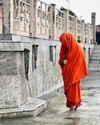
Aga Szydlik INDIA
A JOURNEY INTO THE LAND OF DIVERSITY, CULTURE, AND COLORS

SEBASTIAN PIÓREK EXPLORING Enjoyable LANDSCAPE
I retrieved the idea of nature closely linked to the field of human feelings.
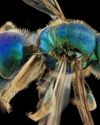
The Extreme Macro Photography of Bees
AN INTERVIEW SAM WITH, DROEGE
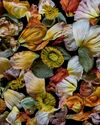
JEAN KAROTKIN GYMNOPEDIES
Gymnopédies, Karotkin's ongoing series of botanical portraits, takes its name from a trio of piano compositions by 19th-century French composer Erik Satie.
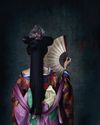
BUTTERFLIES IN LOVE WITH FLOWERS
I sometimes think Chinese art is not fully appreciated in the West. I was exposed to it growing up in Australia, although my fascination was more with calligraphy.

Lissa Hahn:
Hahn: HOW TO EVOKE A PAVLOVIAN RESPONSE IN HUMANS
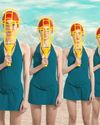
AN EXCLUSIVE INTERVIEW WITH ELENA PARASKEVA
Elena Paraskeva is an internationally acclaimed, award-winning Conceptual Photographer and Art Director and, most recently, an official ADOBE instructor.

From a Living Hell to Heaven on Earth: the Inhumanity and Humanity of Humans
In a remote area of western Wisconsin, dogs and cats who otherwise would have ended up on death row are given a reprieve. They can now live out their lives in peace and comfort and with companionship at Home for Life (HFL), which was not afforded them outside the sanctuary's gates.
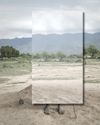
The Art of DISAPPEARING
In the classical proposal, indigenous people are usually the topic of discussion, but rarely do they have a hand in shaping it.